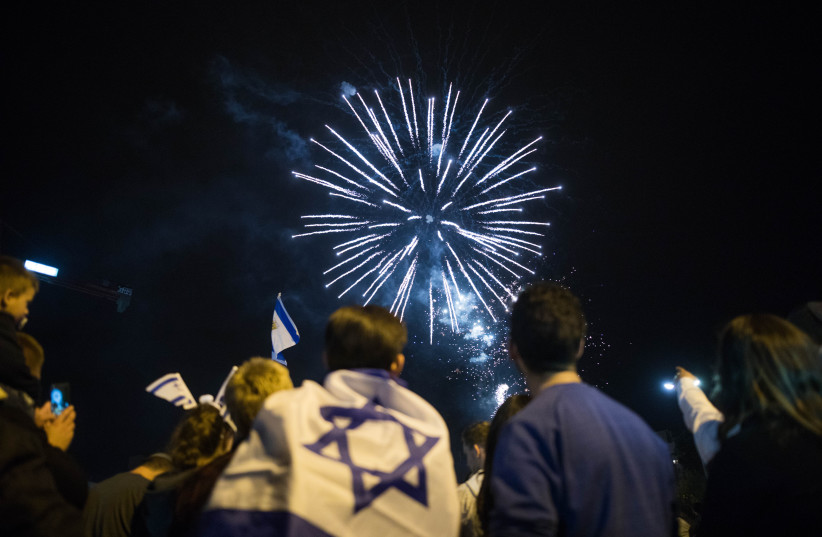While Independence Day usually sees a large number of gatherings, parties and barbecues, the majority of Israelis envision something different this year, according to the Israel Democracy Institute’s April 2024 Israeli Voice Index conducted by IDI’s Viterbi Family Center for Public Opinion and Policy Research.
The survey was conducted between May 1–6, 2024, with 600 men and women interviewed in Hebrew and 150 in Arabic, constituting a nationally representative sample of the adult population in Israel aged 18 and over. The maximum sampling error was ±3.58% at a confidence level of 95%.
The poll found that 56% of Israelis think the local municipalities' Yom Haatzmaut (Independence Day) should be celebrated in a more restrained way.
While more than half said they thought the celebrations should be more muted this year, 31% felt celebrations should not take place at all.
Among Jewish Israelis, nearly 60% across the political spectrum expressed that Independence Day celebrations organized by the local authorities should be restrained this year.
Additionally, there have been calls for members of the Knesset to not attend ceremonies in military cemeteries on this year’s Memorial Day. Some 48% think that MKs should not attend, while 42% think that they should attend. While it appears the issue has divided public opinion, more consensus can be found within political groupings. A majority of Left-wing (82%) and Centrist (60%) Israelis said MKs should not attend, while a slighter majority of those on the Right (59.5%) hold the opposite view.
Views on the upcoming US elections
A majority of Israelis expressed that a second Trump presidency would be in Israel’s interest. The consensus came as President Joe Biden paused weapons and aid shipments to Israel over disagreements on a Rafah operation. The disagreement led to the US revealing that intelligence information was being withheld from Israel, which the US is now leveraging in an attempt to halt IDF operations in Rafah.
The respondents were asked, "In terms of Israel's interests, which of the two candidates for the US presidency would be better?" Among the general public, 37% say a Trump presidency would be better for Israeli interests and 29% say President Biden would be better.
The consensus among Jewish Israelis was much stronger, with 42.5% answering a Trump presidency would be better for Israeli interests, compared to 32% who said a Biden presidency would be better and 15% who said they do not know.
Among Arab Israelis, a large majority (68%) said there is no difference between the two, 13% say a Trump presidency would be better and 14% say a Biden presidency would be better.
There are sharp divisions on this matter across the political Left (9% Trump / 78% Biden) Center (23% Trump / 48% Biden) and Right (61% Trump / 13% Biden.)
Recognizing Palestinian statehood
As the United Nations voted in favor of pushing forward with plans for a Palestinian state, respondents were asked whether the government's recent military and international affairs-related conduct has accelerated this move.
More than half (55%) of Jewish Israelis and 75% of Arab Israelis stated the government's conduct has, indeed, been an accelerating factor. Responses varied more by political orientation, with 86.5% on the Left and 72% in the Center saying Israel's conduct has accelerated these moves, compared to only 38.5% on the Right.
The Iran threat
When asked “After the measured exchanges of fire between Israel and Iran, which of the two countries is now in a better strategic position in the region?” Among Jewish Israelis 46% said that Israel has the advantage, while 46% of Arab Israelis think that the strategic position of the two countries is identical.

